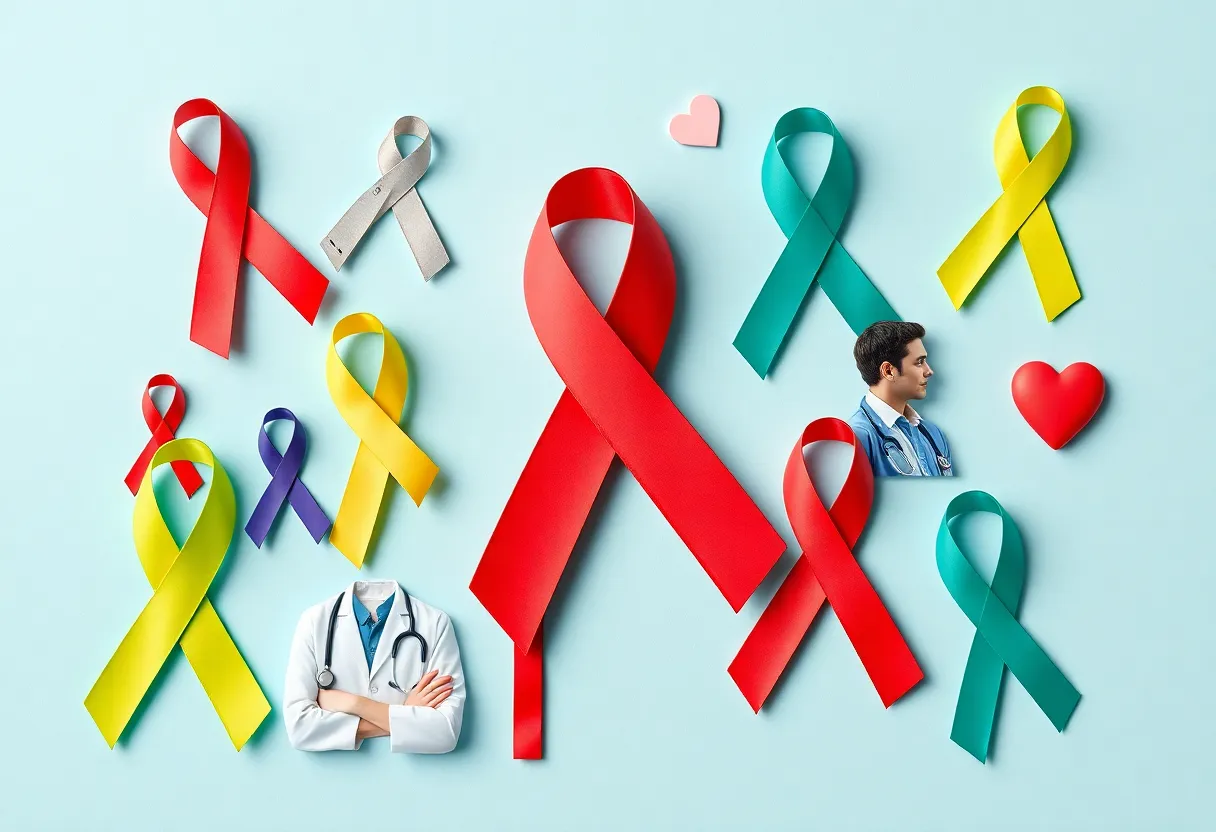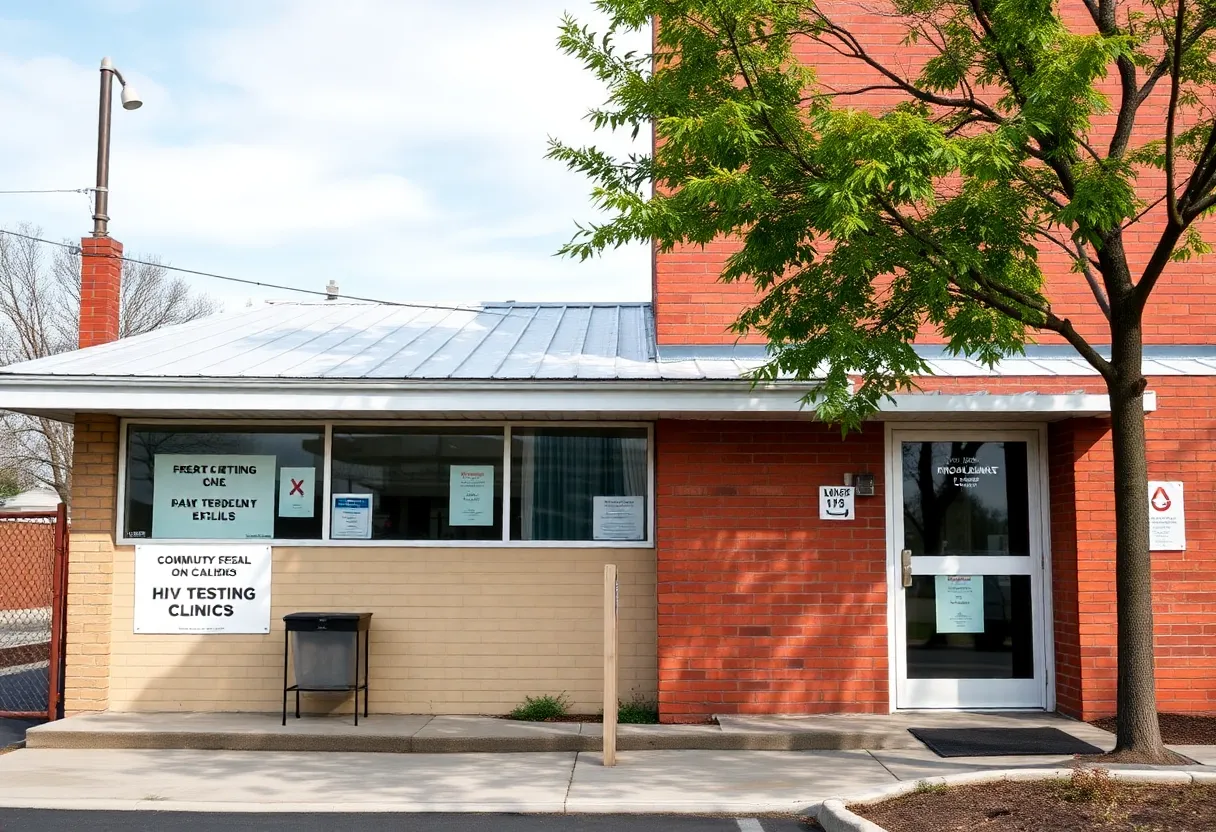News Summary
March is recognized as Kidney Cancer Awareness Month, a time to reflect on the challenges faced by kidney cancer patients and the advancements in treatment and detection. With about 81,000 new diagnoses each year in the U.S., awareness, early detection, and patient advocacy are vital. This month emphasizes the importance of understanding symptoms, making healthy lifestyle choices, and participating in clinical trials to improve outcomes for those affected by kidney cancer.
March Marks Kidney Cancer Awareness Month: Understanding the Challenges Ahead
As March rolls in, it’s time to turn our attention to an important cause: Kidney Cancer Awareness Month. This month serves as a reminder to reflect on the challenges faced by those diagnosed with kidney cancer, along with the advancements being made to help improve early detection and treatment options.
Understanding Kidney Cancer
Each year in the United States, around 81,000 new cases of kidney cancer are diagnosed. That’s a staggering figure that affects many lives and families. Kidney cancer may not be the most common type of cancer, but it still ranks as the third most prevalent urologic cancer. By 2025, we expect to see up to 80,980 new diagnoses and unfortunately, about 14,510 deaths as a result.
The Patient Journey: Challenges and Hurdles
Kidney cancer isn’t just a diagnosis; it’s a journey filled with unique challenges. One of the major hurdles that patients face is accessing specialized care. General oncologists may not be as updated on the latest treatments specific to kidney cancer, which can lead to significant gaps in knowledge and care. This emphasizes the importance of patient advocacy and education to ensure that individuals have access to the best care possible.
Because kidney cancer often shows no signs until it reaches advanced stages, early detection and routine screenings are much more crucial. High-risk individuals, especially those aged 45 and older, should undergo regular checkups as a precaution. Men, in particular, should be especially vigilant, as they are at a higher risk than their female counterparts.
Know the Signs: Symptoms You Shouldn’t Ignore
Understanding the common signs and symptoms of kidney cancer can also aid in early detection. However, it’s worth noting that only about 9% of patients display the classic trio of symptoms: hematuria (blood in urine), abdominal pain, and a palpable mass. This means that many are caught off guard; symptoms often don’t appear until the cancer has progressed significantly.
Making Healthy Choices: Reducing Your Risk
Some of the risk factors associated with kidney cancer include smoking and unhealthy lifestyle choices. But here’s the good news: making positive lifestyle changes can help mitigate these risks. Incorporating a balanced diet, staying active, and avoiding tobacco can go a long way in protecting your kidney health.
What Are the Treatment Options?
When it comes to treatment, surgical intervention remains the top option for kidney cancer patients. However, there has been exciting progress in new drug therapies. Modern advancements, including VEGF-targeted therapies and immune checkpoint inhibitors, have transformed treatment strategies, especially for metastatic renal cell carcinoma (RCC). Recent findings indicate that some patients may even achieve comparable survival outcomes by taking sunitinib without undergoing surgery, marking a significant shift in traditional treatment protocols.
What’s in the Future: Clinical Trials and Research
Participating in clinical trials remains crucial for gathering data on new treatments and improving patient care. Ongoing research is exploring novel approaches and therapeutic combinations. These include CAR-T therapy and combination therapies involving VEGF-TKI and PD-1/PD-L1 inhibitors, improving outcomes even further for those battling metastatic RCC.
Staying Informed: The Best Defense
It’s important for patients and their loved ones to stay informed about advancements in kidney cancer treatments. Recognizing the side effects—such as hypertension, diarrhea, fatigue, and hypothyroidism—is another crucial aspect of patient management. Engaging in regular screenings, maintaining a healthy lifestyle, and being proactive in understanding treatment options can empower patients and improve outcomes.
So as we acknowledge Kidney Cancer Awareness Month this March, let’s encourage open conversations, early detection, and support for all those affected. There is hope, and the journey doesn’t have to be faced alone!
Deeper Dive: News & Info About This Topic
HERE Resources
Additional Resources
- Cure Today: Patient Advocate Highlights Kidney Cancer Awareness
- Wikipedia: Kidney Cancer
- WIFR: UW Health Oncologist Shares Signs & Symptoms of Kidney Cancer
- Google Search: Kidney Cancer Symptoms
- WTNH: Therapeutic Vaccine for Kidney Cancer Shows Positive Results
- Google Scholar: Kidney Cancer Treatment Advancements
- Click Orlando: Man Defies Stage 4 Renal Cancer
- Encyclopedia Britannica: Kidney Cancer
- Arbiter: Teammates Find Strength in Battle Against Kidney Cancer
- Google News: Kidney Cancer







